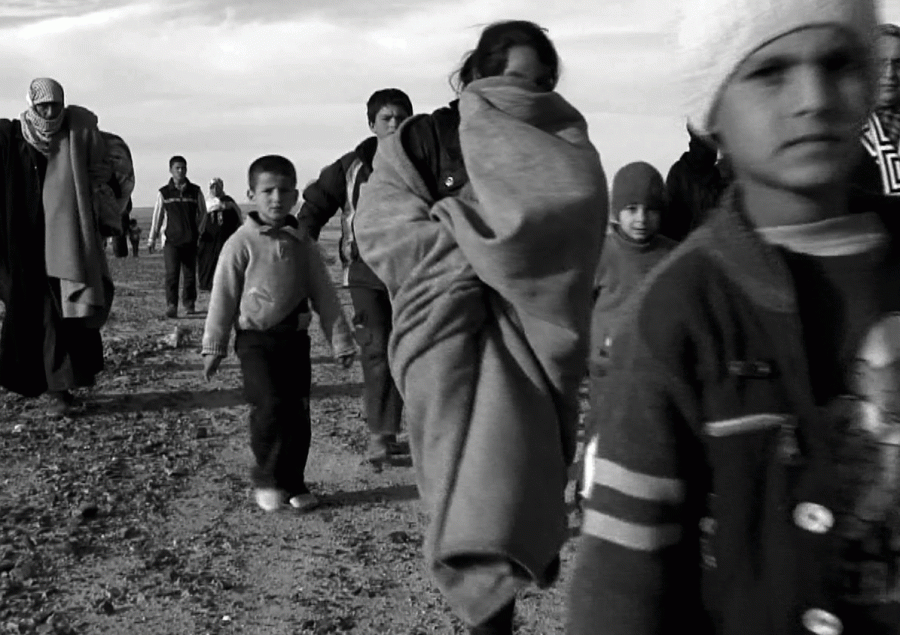‘A Requiem for Syrian Refugees’ Exposes Refugee Struggle to Survive
On Thursday afternoon, the Colgate chapter of nation-wide Amnesty International club put on a film screening of “A Requiem for Syrian Refugees.” The Colgate club leader, senior Jade Hoang, said that the club’s effort this semester is to focus on immigration issues both here in the United States and abroad. The film was created by Richard Wolf in 2014 and was just under an hour long.
The film started off with written facts about the struggle occurring in Syria and raw footage of the violence. The material was sensitive, as it featured men armed with assault weapons shooting at each other, as well as military tanks roaming the streets of populated neighborhoods.
The documentary was in Kurdish with English subtitles. It featured several different refugees talking about their experiences in Syria before having to leave, as well as their current experiences in the refugee camps. One man recalled the feeling of fear that was so prevalent when he was still in Syria. People were scared to go outside and worried about their safety in the market place and in schools. He said that early on, many believed that Bashar Al-Assad would fall and their lives would get better, but that over time, people began to fear that Syria would become like Iraq.
Some of the people in the documentary recalled what it was like to leave Syria. They recalled that it was every man for himself. No one helped the children or the elderly carry their bags or helped them up if they fell. Once people made it across the border, however, they helped others once again. These recollections were accompanied by footage of hundreds of people trying to cross the Syrian border.
Lastly, the subjects of the documentary talked about their new lives in the refugee camps. These camps are tent cities for thousands of people. Often, tents will have between five and ten people in them. This is meant to be a temporary living situation for the refugees, but they have no idea how long they will be in these camps. It takes a great emotional toll on everyone. One woman, a mother of several children, recounted the struggles she had encountered so far. Families are often split up, since it is very difficult to find work in the camps. One woman’s husband is gone for weeks at a time so he can venture outside the camp to do odd jobs.“I have been crying non-stop,” she said.
The camps are particularly hard on families with members that have disabilities or illnesses. There is no quality medical care for refugees within camps, so ailments often progress to the worst possible form. One father talked about the struggles of having a son paralyzed by Hepatitis, as well as a daughter with Down Syndrome, while another family discussed the trials of having relatives with cancer in the camp. One man said, “Survival. This is what we learned here.”
The struggles facing the refugees are nearly endless. One woman said, “As long as we are living in these tents, we have no future.” The Colgate chapter of Amnesty International is doing what they can to alleviate some of these problems. This coming week, they will be traveling to Utica to volunteer at the refugee center.
If you would like to view the powerful documentary, it can be found at colgate.kanopystreaming.com.







